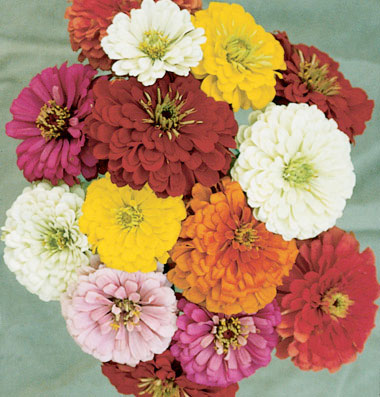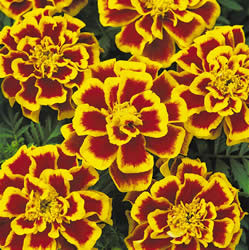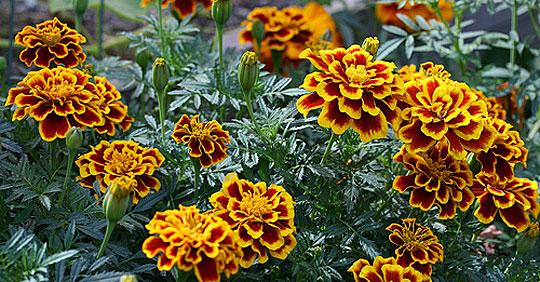Weekend Gardening: Flowering Plants Require Summer Care
July 9, 2011
High temperatures can be stressful on our colorful annual and perennial plants causing many to diminish in vigor and beauty. Even though it’s hot outside, take the time to take care of your flowering plants. Good maintenance includes regular fertilization, watering, pruning and weeding.
 Many beds deteriorate simply because the flowering plants are starving. Our typical sandy soils don’t have the ability to store large amounts of some nutrients, especially nitrogen and potassium. After four to six weeks of waterings, most of these two nutrients have been depleted.
Many beds deteriorate simply because the flowering plants are starving. Our typical sandy soils don’t have the ability to store large amounts of some nutrients, especially nitrogen and potassium. After four to six weeks of waterings, most of these two nutrients have been depleted.
Plants usually grow much better with a continuous nutrient supply. Controlled-release fertilizers like Osmocote, Nutricote, Dynamite and others tend to be more costly, but the nutrients in them are slowly and steadily delivered to the plants over an extended period of several months. If you aren’t using controlled release fertilizers, then monthly applications of a granular fertilizer may be necessary.
Established beds should be watered on an “as needed” basis. Wilting will reduce flowering on many plants and should not be allowed to happen. The frequency of irrigation will depend on your soil type, exposure to sunlight, the plant species and the temperature. While we tend not to recommend daily watering, some annuals
growing in full sun during the summer may require daily watering.
 Always water during the early morning hours, rather than in the afternoon and evenings. This helps to reduce the incidence of flower, stem and leaf diseases. Avoid overhead watering if possible. Delivering watering to the roots through a microirrigation system, for example, is a preferred method.
Always water during the early morning hours, rather than in the afternoon and evenings. This helps to reduce the incidence of flower, stem and leaf diseases. Avoid overhead watering if possible. Delivering watering to the roots through a microirrigation system, for example, is a preferred method.
Good pruning practices can also help to keep flower beds vigorous. Many gardeners use the term “deadheading” to refer to the removal of old flowers as soon as they begin to deteriorate.
The goal of many flowering annuals and perennials is to reproduce themselves. Once this has been accomplished through seed production, plants change physiologically. Often the growth rate and flowering for the remainder of the season ceases or is greatly reduced.
Deadheading prevents the plants from producing seed and shutting down. Once old flowers are removed, the plants grow again in order to flower. This process can continue throughout the summer with well adapted flowering annuals and perennials.
The procedure is simple. Wait until flower spikes or individual flowers start to decline and then pinch or prune off the spent blooms. Enjoy the flowers during their peak, but don’t wait too long to deadhead. Once seed set occurs, the depletion of the plant’s stored energy begins.
Leave as much foliage on the plants as possible when deadheading unless they have become extremely tall and unruly. In this case, they can be cut back by one-third without serious damage.
 Some gardeners establish a routine of deadheading. After each flush of bloom has faded, plants are cut back to remove old flowers and fertilized to encourage new growth. This practice can stimulate some flowering annuals and perennials to produce three or four flushes of growth and continued flowering throughout the spring
Some gardeners establish a routine of deadheading. After each flush of bloom has faded, plants are cut back to remove old flowers and fertilized to encourage new growth. This practice can stimulate some flowering annuals and perennials to produce three or four flushes of growth and continued flowering throughout the spring
and summer.
Weeds can become very competitive in summer flowers, and in most cases hand weeding is required. Though there are a few herbicides that can help, extreme care must be taken in the selection and use of these products during the hot weather.
Evaluate all flower beds before beginning a summer maintenance program, making sure that you are expending efforts on truly warm season plants. Some, such as snapdragons, dianthus, carnations and pansies are cool season plants and no amount of care will help them to overcome summer temperatures. On the other hand, zinnias, marigolds, salvia and the tropical perennials will return your efforts many times over.
Comments
2 Responses to “Weekend Gardening: Flowering Plants Require Summer Care”




Appreciate the information, keep up the good work.
Good info. Thanks!